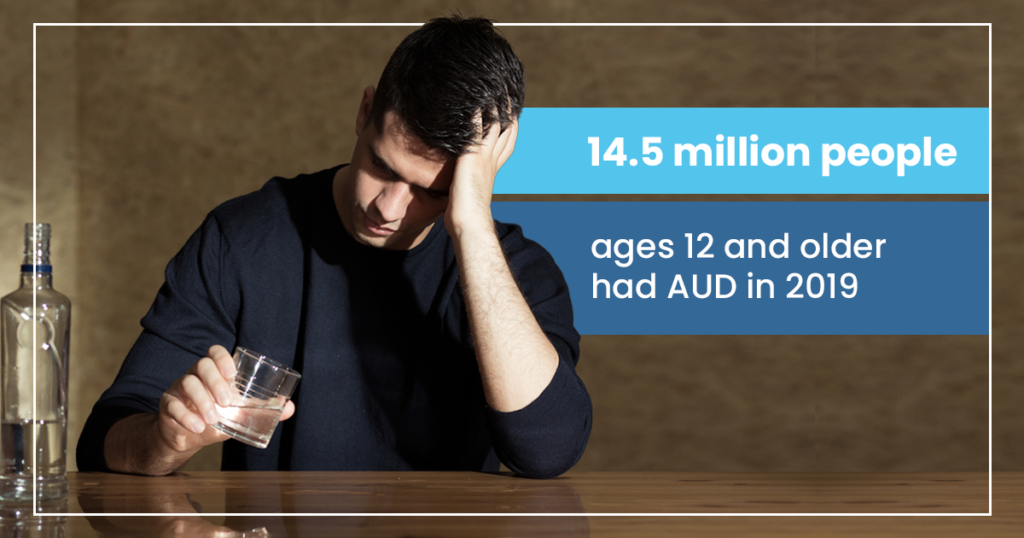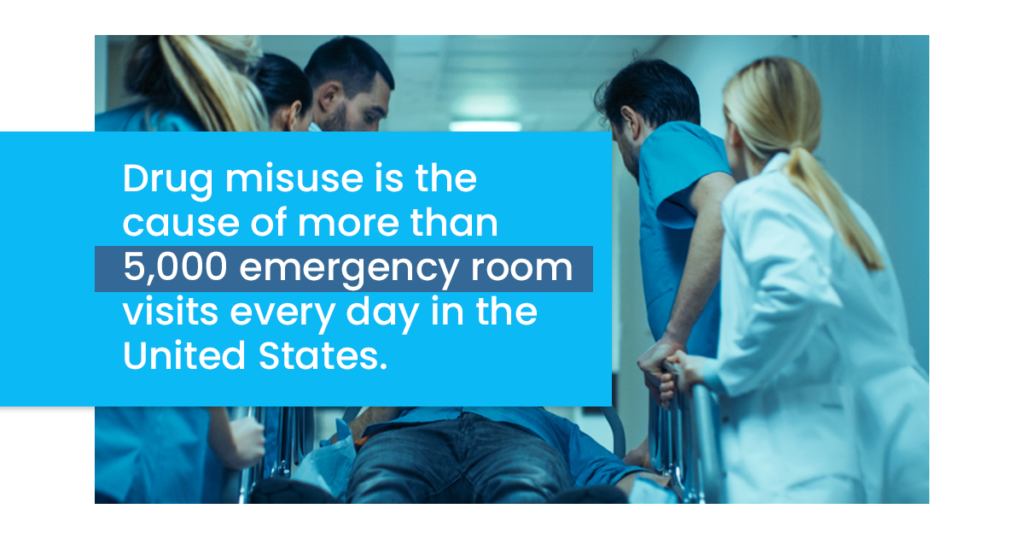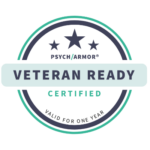
Alcoholism, also known as alcohol use disorder (AUD), is one of the most prevalent diseases in the US, and it is the third leading cause of death in the overall population. People from many walks of life are affected by the disease.
According to the 2019 NSDUH, 14.5 million Americans aged 12 and over (5.3% of this age group) have AUD. This statistic comprises 5.5 million women (3.9 percent of women in this age group) and 9.0 million men (6.8 percent of men in this age range).
Family members and friends must regularly discuss the effects of an addicted individual’s actions. This step may seem disheartening, but it doesn’t have to be. Several treatment options are available to aid those battling alcohol addiction, including talk therapy, support groups, and medications like suboxone treatment for alcoholism.
What is Suboxone?
Suboxone, a prescription medication, is used to treat opioid addiction. It comprises buprenorphine and naloxone as components. As a partial opioid agonist, buprenorphine inhibits the opiate receptors and lowers a person’s cravings.
The second element, naloxone, is used to counteract the effects of the opioid. Together, these medications decrease the withdrawal symptoms associated with alcohol and drug addiction.
Suboxone is often used at the beginning and during treatment and recovery. Your doctor or addiction counselor can assist you in developing an individualized treatment plan.
While suboxone can aid in managing drug and alcohol withdrawal symptoms, it is crucial to locate a comprehensive treatment program. Counseling and therapy can help you tackle the underlying cause of your alcoholism and drug abuse and discover new coping mechanisms for pain and stress.
How Does Suboxone Help Addiction Treatment?
Suboxone can be administered at various phases of treatment and provides a long-term option for managing drug and alcohol addiction. The medication removes drug and alcohol cravings as part of a rehab program.
Suboxone slows you down rather than making you more active as a stimulant does since it is a depressant. Those who take the medication may experience:
- Relaxation
- Calmness and overall well-being
- Pain relief
- Perceived fewer worries and reduced stress levels
Suboxone users should attend follow-up appointments with their prescribing doctors to ensure a successful recovery.
Is Suboxone Used for Alcohol Addiction?
The most common drug problem in the United States is alcohol. Drug misuse is the cause of more than 5,000 emergency room visits every day in the United States. Additionally, 53 percent of individuals in the United States know someone with a drinking problem. Given this information, it’s critical to learn about the many alcoholism and detoxification programs available.
Suboxone is an approved medication for the treatment of opioid dependence. Examples of opioids include heroin, oxycodone, and codeine. Opioids are painkillers that operate similarly to morphine in the body. This medication is intended for use with therapeutic therapy and psychological and social counseling and may only be prescribed by licensed suboxone treatment physicians.
Suboxone can treat alcohol addiction as long as the individual is not drinking when the prescription is taken. Depending on the severity of a person’s alcoholism, suboxone may help alleviate their withdrawal symptoms. During alcohol detoxification, doctors may prescribe a low dose in the hope that adverse effects may become less severe.
- Benzodiazepines are a common medication for easing or managing the symptoms of alcohol withdrawal due to their general safety and efficacy. The function of benzodiazepines is to calm the central nervous system. They do this by increasing the effects of the inhibitory neurotransmitter GABA, which has a calming effect. This effect guarantees that several distressing symptoms linked with alcoholism treatment are significantly reduced.
- Naltrexone is an effective medication for treating both opioid and alcohol dependence. Naltrexone is an antagonist for opioids. It binds to opioid receptors but does not activate them. This absence of activation indicates that the medicines have no psychoactive effects.
- However, because naltrexone is a competitive antagonist, it binds to more receptors than competing drugs. Thus, if a drug were to enter the body of a user, naltrexone would reduce the potency of its effects by reducing the number of sites where the substance may bind to neurons and produce “high” effects.
- Naltrexone is effective in treating alcohol and opioid addiction because both of these addictions and their associated withdrawal symptoms are caused by the over-activation of opioid receptors in the brain.
There are suboxone treatment programs available where individuals may learn how to live a healthy life. Speaking with suboxone treatment doctors will assist the patient in comprehending the origins of their addiction and how to focus on conquering the addiction as a whole.
This medication has a successful track record. Over fifty percent of patients surveyed in one study remained clean for more than a year, and some reports that treatment retention was as high as sixty percent.
Can Suboxone be Used as the Only Treatment Option for Alcohol Addiction?
Even when suboxone can help with withdrawal symptoms during an alcohol abuse detoxification program, it should not be made the primary treatment option. Suboxone should be paired with counseling, group sessions, and other techniques deemed necessary by the treatment program.
Detox programs are generally short-term, but someone with severe addiction may require a more extended stay in rehabilitation. Suboxone should only be administered per dose and prescription instructions.
Abuse can result in undesirable symptoms or dependency.
Suboxone can be used for alcohol withdrawal, but many more options are available. Unfortunately, alcohol withdrawal cannot be treated and must be suffered to overcome alcoholism.
Dangers of Mixing Alcohol and Suboxone
Combining suboxone with alcohol is risky for several reasons, each of which relates to a different way they impact the body when combined. Never mix depressants (alcohol) with opioid agonists such as suboxone, as you cannot control the potential side effects. When you combine the two, you will experience the unpleasant effects of alcohol use, like dizziness, slurred speech, and sleepiness, and more dangerously, the lack of willpower and the inability to make sensible decisions.
When taken with alcohol, synthetic opioid agonists lias Suboxone also boost the brain’s synthesis of gamma-aminobutyric acid (GABA), an inhibitory neurotransmitter. An excess of GABA can cause reductions in heart rate, body temperature, and breathing.
In addition, combining these substances can raise your addictive behaviors and tolerances, making it more likely that you will develop a dependence on this fatal cocktail than if you used suboxone or alcohol alone.

Frequently Asked Questions (FAQs)
Is buprenorphine used to treat alcoholism?
The effects of buprenorphine on alcohol consumption are dualistic; low dosages enhance alcohol consumption by stimulating traditional opioid receptors, while larger doses decrease it by activating NOP receptors.
What is the most effective treatment for alcohol dependence?
In addition to behavior therapy, FDA-approved treatment options for alcohol dependency include naltrexone (Trexan) and acamprosate (Campral).
How does suboxone work for addiction?
Suboxone works by inhibiting the opioid-craving receptors in the brain without activating these receptors to provide a “high.” Opioid receptor blocking prevents the brain from generating signals that lead to withdrawal symptoms and opioid cravings.
Is suboxone accepted in the AA program as sobriety?
If suboxone is prescribed, this is between you and the doctor. AA does not have a medical license. Some AA stalwarts “suggest” that to claim “sobriety,” one must completely abstain from all drugs that change one’s mood.
Such people are dangerous, and there have been several instances when individuals who were urged to stop taking their prescribed medications by such members later committed suicide. Take suboxone if it helps you. If you attend AA, it is advised to keep your personal matters secret and to disregard anyone who claims to be more knowledgeable than your doctor.
Find Professional Care at The Haven
The first and most crucial thing to understand if you or a loved one is seeking alcohol addiction treatment because of a substance use disorder is that you are not alone. Despite the harm that alcohol does to families and the affected person, treatment programs now offer a positive framework and evidence-based methods for recovery.
To safely recover from alcoholism, you need a team of medical specialists who know substance dependency inside and out and how to treat your situation. Reaching out to the doctors and clinicians at The Haven is the first step to overcoming addiction.
Call us at (561) 328-8627 today and speak to our trained counselor to learn more.






